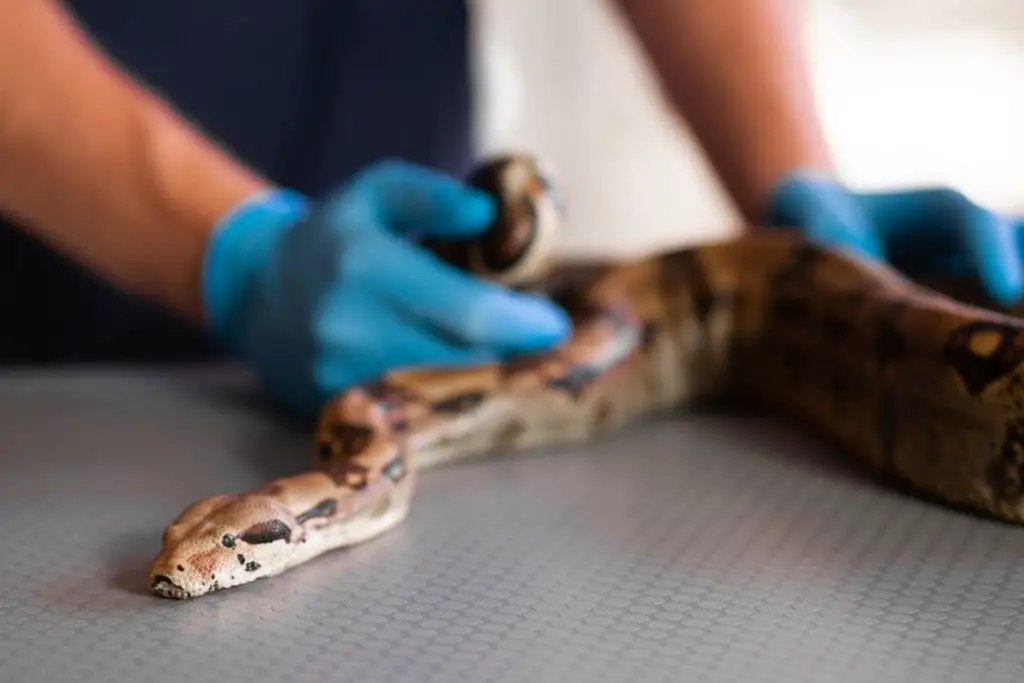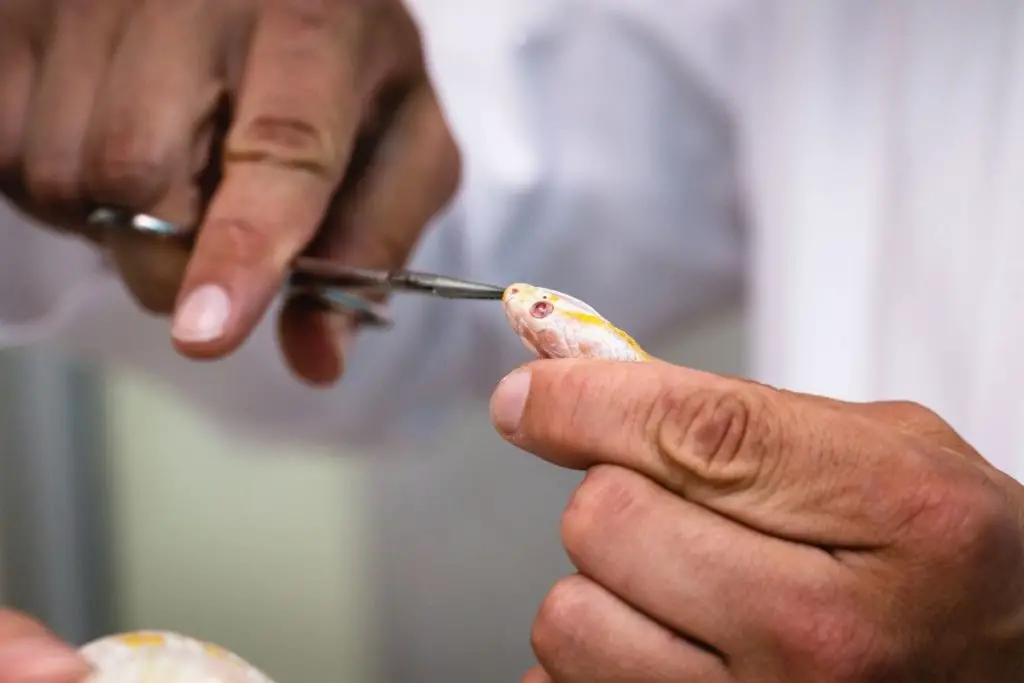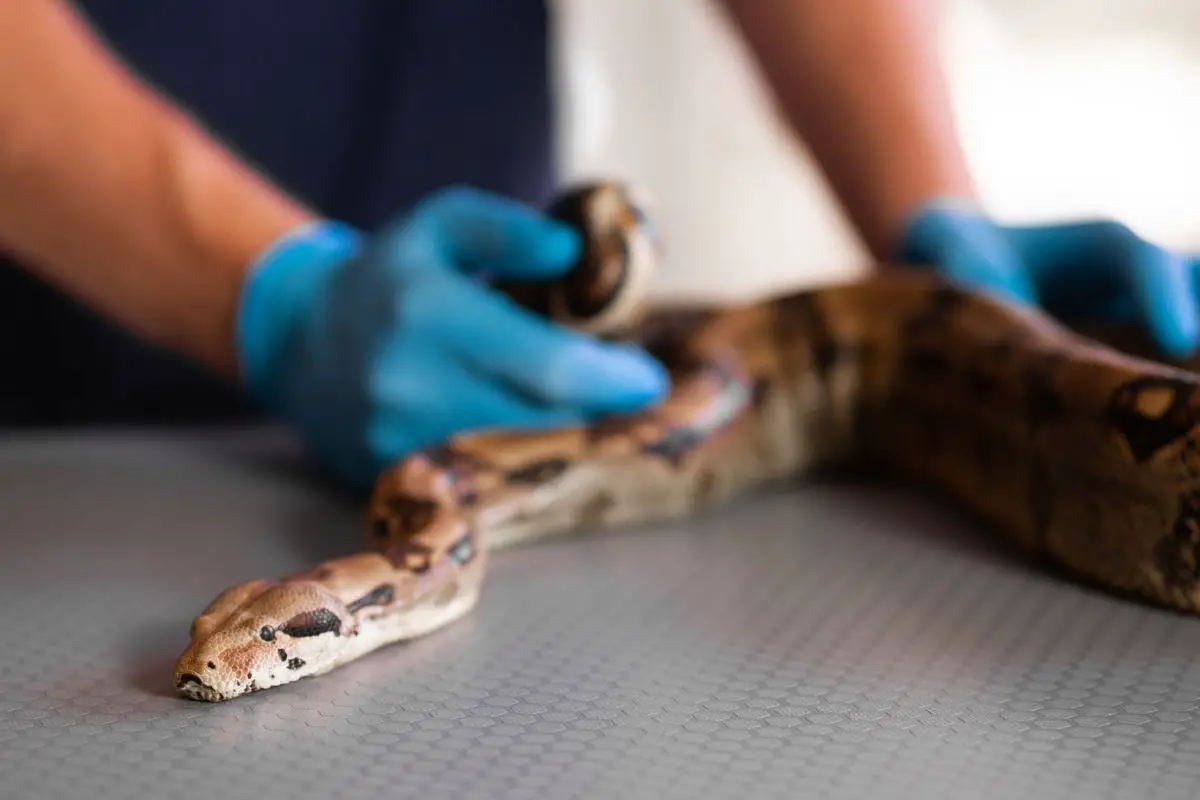There are many things you need to do when you get a new pet, and one of the most important things you should be doing is to go get them vaccinated.
However, what about snakes? you have probably never seen a snake being vaccinated, and this makes you wonder; do they even need them?
Let’s answer this quickly:
So, do snakes need vaccinations? Snakes do not need vaccinations because there are no vaccines available for snakes since they don’t catch diseases like rabies or parvo, and they live an isolated life so they don’t get infected from other snakes. Snakes still require veterinary care when they get sick and should get regular checkups.
This is good news for snake owners, and it just goes to show you that pet snakes are quite low-maintenance pets.
However, you still need to know about the common health problems for pet snakes, when to worry (and when not to), and when to get them to vet, so stick around as I try to answer all these questions (and more)…
This article was reviewed and edited by a vet, but it shouldn’t serve as an alternative to your own vet. Please consult your vet for specific advice about your pet.
Contents
Do Snakes Get sick?

Yes, snakes do get sick. Just like any other pet, they can contract parasites, respiratory infections, and even snake mites (yuck!).
The chances of your pet snake getting sick are much lower than the chances of your pet dog or cat getting sick, but they are never zero.
The most common health problems for pet snakes
The most common health problems for pet snakes are:
- Respiratory infection
- Parasite infestation
- Snake mites
- Shedding difficulties
Snakes can be infected by many parasites, including mites and ticks. They can also get viral and bacterial infections. Mouth rot is a very serious medical issue that is common in snakes.
Upper respiratory disorders and stomatitis are two of the most frequent viral and bacterial infections. Stomatitis is a mouth rot that affects pet snakes. Trauma, in addition to disease, can befall snakes from time to time.
Rodent bites, burns, cuts, retractions of the stomach and intestines, prolapse of the stomach or intestines, cranial cruciate ligament rupture, and eye caps are all examples of injuries that require veterinary treatment.
Rodent bites are more common than you think because they happen when people try to feed their pet snakes wild mice like the snake would have eaten in the wild, but wild snakes and pet snakes are different, and you shouldn’t feed your pet snake wild mice as explained here.
You can learn how long can snakes stay without water here.
How to keep your pet snake healthy?
Since there are no vaccinations for snakes, you will need to be more cautious with your snake and take good care and preventative steps to minimize their risks of getting infected.
Providing your snake with the right environment, foods, and husbandry will help strengthen its immune system and make it live a healthier life.
Make sure your pet’s cage is clean and adequately heated, and give it enough water. Avoiding stressors will also play a big role in keeping them happy and healthy.
When to take your snake to the vet?

You will need to take your snake to the vet when serious health concerns arise. Minor health concerns, such as a bad shed or a minor accident, may be treated at home, but other more serious issues will require professional veterinary care.
Snakes will need medical attention when they contract diseases like mouth rot, respiratory illnesses, or internal parasites.
There is no trial and error when it comes to the health of your pets, if you think your pet has a medical issue, you should take it to the vet and not wait until the symptoms become more serious. The quicker a medical problem is caught, the easier it is to treat.
You should also keep in mind that not many people have pet reptiles, which means that few vets have experience dealing with pet snakes, so you may want to spend some time researching the vets in your city to find someone with experience with snakes.
Even better, try to build a good relationship with your vet as any vet will be able to treat the animal more effectively if they know the medical history of the animal.
Keep a First Aid Kit at home
Ideally, you want to keep a first aid kit in the same room as your snake for easy access. This kit should include cotton swabs, medical tape, antispetics, antibacterial soap, and a triple antibiotic gel. These are all useful for handling minor health issues.
It’s also recommended to include a mite spray as part of this kit.
Helpful Resources
How can I tell if my snake is sick?
If you like this article, please share it!

